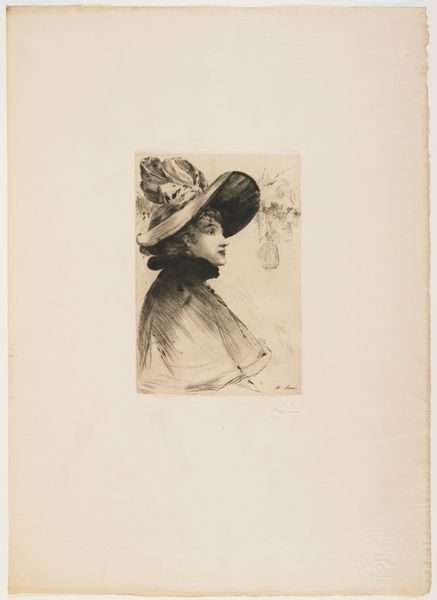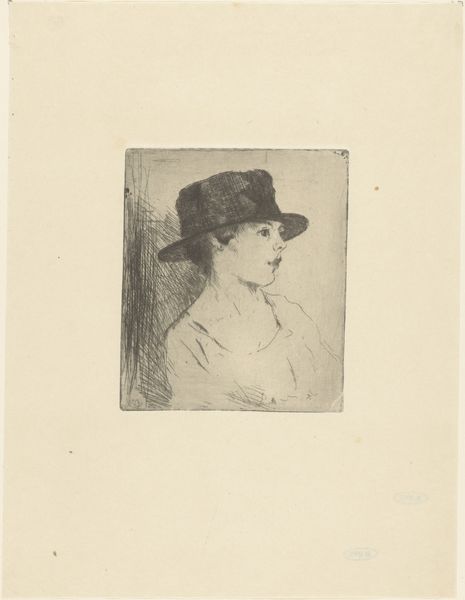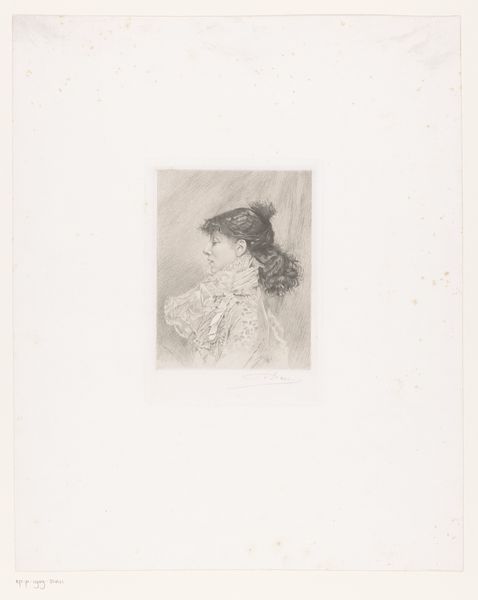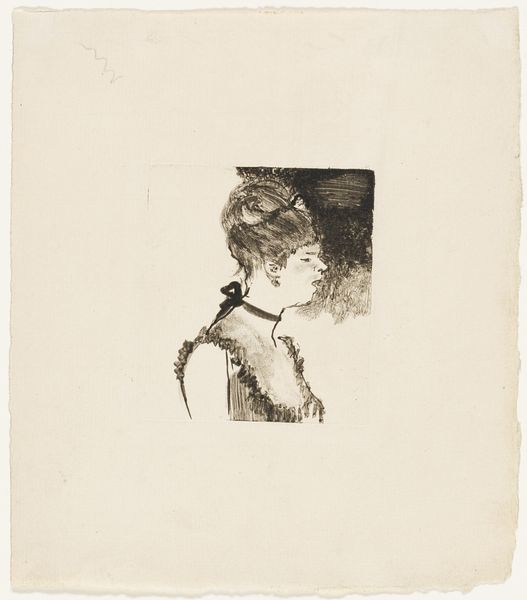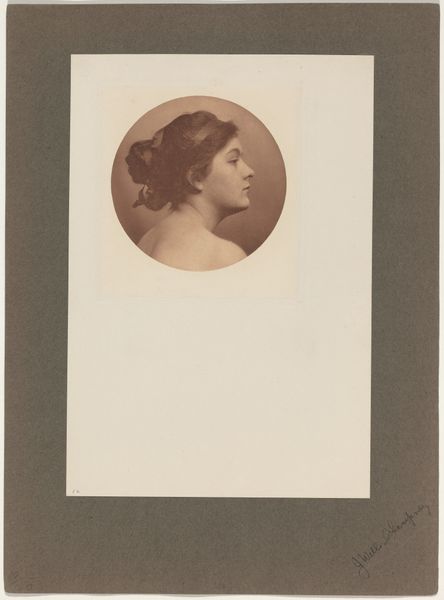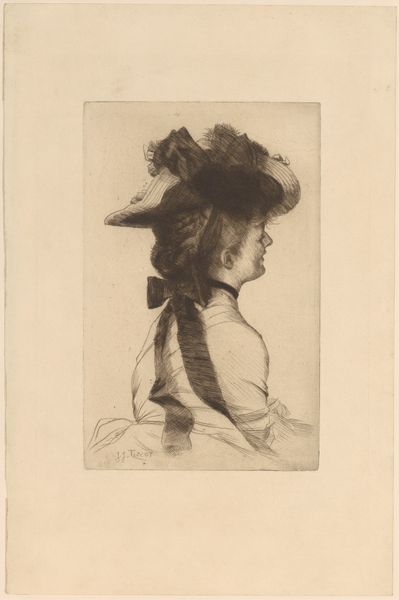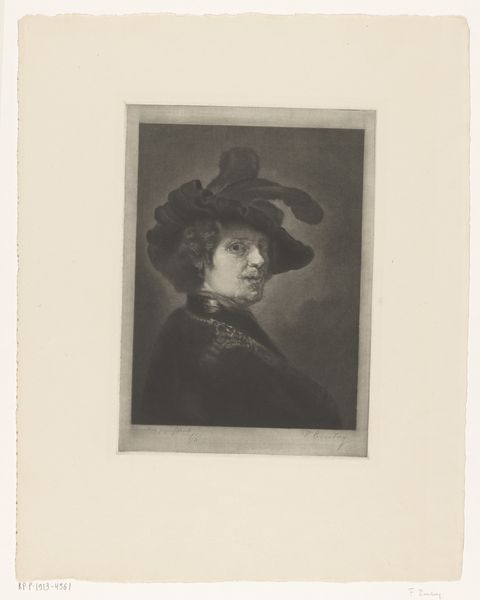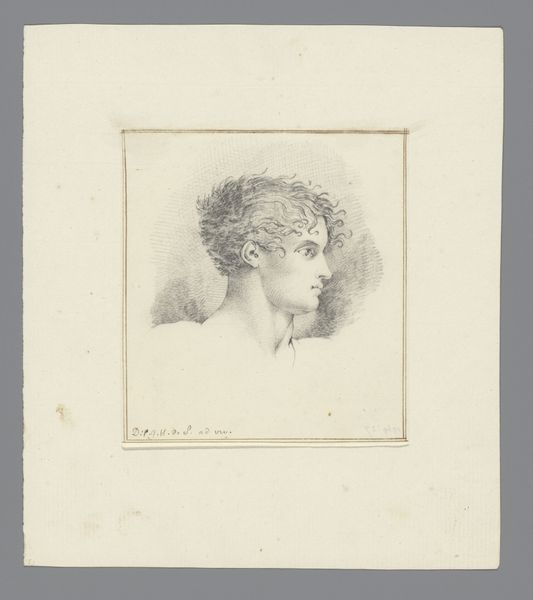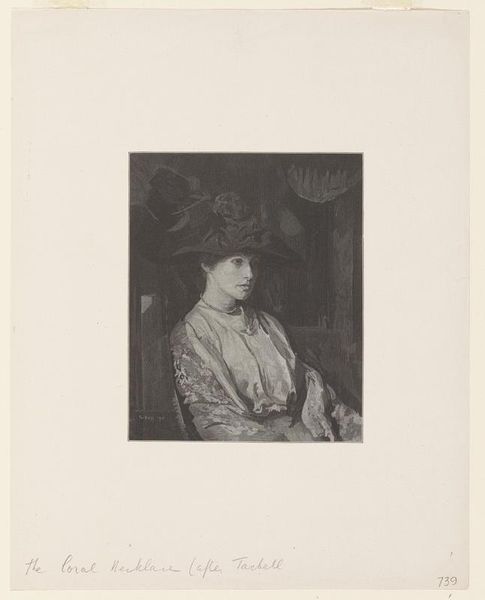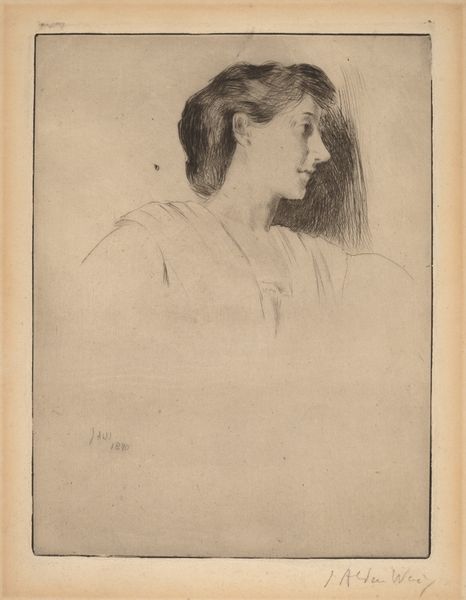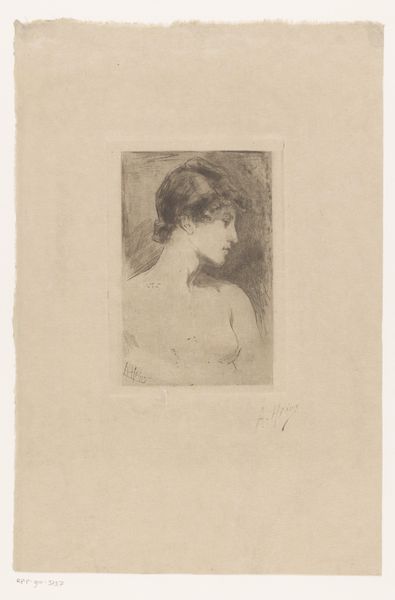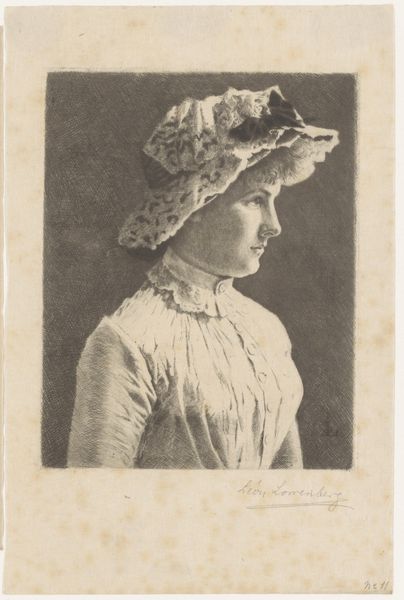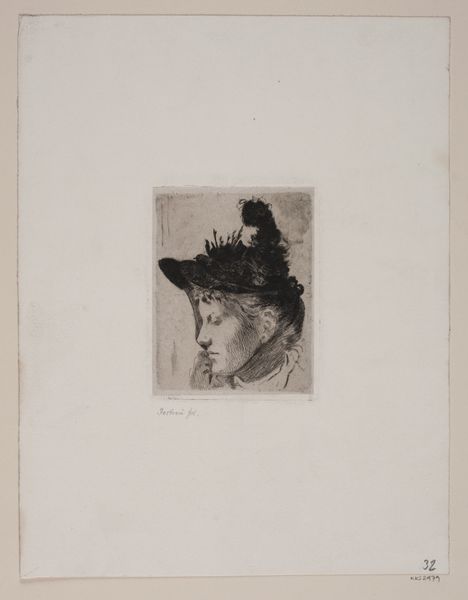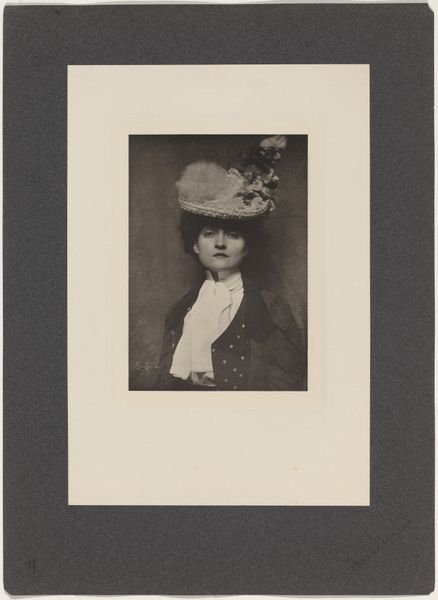
print, engraving
#
photo of handprinted image
#
toned paper
#
ink paper printed
# print
#
white palette
#
charcoal drawing
#
charcoal art
#
unrealistic statue
#
tonal art
#
engraving
#
watercolor
#
statue
Dimensions: 126 mm (height) x 103 mm (width) (Plademål)
Editor: This is "Young Girl with Straw Hat, Profile to the Left" by Frans Schwartz, created in 1898. It's a really delicate engraving; the light and shadow give it a very dreamy quality, almost melancholic. What's your take on it? Curator: The melancholy you perceive is quite resonant, and speaks to the context of its time. Think about the late 19th century in Europe - burgeoning industrialization, shifting social structures. The portrait, and specifically the woman’s gaze directed away from us, speaks to a sense of detachment, perhaps even a quiet resistance to the rapid changes swirling around her. How does the hat itself inform your reading? Editor: That's interesting. I hadn't really thought about the hat as anything other than decorative, but now I see how it could be a kind of shield, almost like armor. Does the “straw hat” have further significance culturally for this period? Curator: Exactly. While appearing decorative, consider its potential symbolism regarding social class and gender expectations. Straw hats, while fashionable, also speak to labor and a connection to the land – a contrast to the more ornate hats worn by the upper classes. The sitter's averted gaze, combined with this detail, poses a compelling question about identity, performativity, and belonging during a period of immense social change. Do you see how the image could even critique these constrictions? Editor: Absolutely. By not directly engaging with the viewer, she seems to be rejecting those expectations. I now appreciate how deeply the artwork relates to socio-political issues, revealing that an apparently quiet image can speak volumes about a transformative era. Curator: Precisely! These nuanced perspectives really highlight the work’s significance beyond a simple portrait and allow it to engage directly with vital dialogues of its era.
Comments
No comments
Be the first to comment and join the conversation on the ultimate creative platform.
